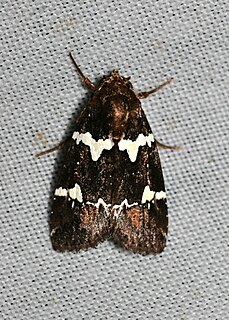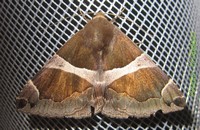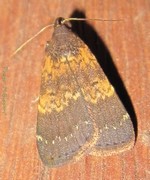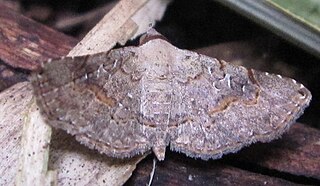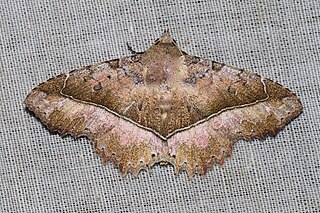| Chasmina | |
|---|---|
 | |
| Scientific classification | |
| Kingdom: | Animalia |
| Phylum: | Arthropoda |
| Class: | Insecta |
| Order: | Lepidoptera |
| Family: | Noctuidae |
| Genus: | Chasmina Walker, 1856 |
| Synonyms | |
| |
Chasmina is a genus of moths of the Noctuidae family.
A genus is a taxonomic rank used in the biological classification of living and fossil organisms, as well as viruses, in biology. In the hierarchy of biological classification, genus comes above species and below family. In binomial nomenclature, the genus name forms the first part of the binomial species name for each species within the genus.

Moths comprise a group of insects related to butterflies, belonging to the order Lepidoptera. Most lepidopterans are moths, and there are thought to be approximately 160,000 species of moth, many of which have yet to be described. Most species of moth are nocturnal, but there are also crepuscular and diurnal species.

The Noctuidae, commonly known as owlet moths, cutworms or armyworms, are the most controversial family in the superfamily Noctuoidea because many of the clades are constantly changing, along with the other families of the Noctuoidea. It was considered the largest family in Lepidoptera for a long time, but after regrouping Lymantriinae, Catocalinae and Calpinae within the family Erebidae, the latter holds this title now. Currently, Noctuidae is the second largest family in Noctuoidea, with about 1,089 genera and 11,772 species. However, this classification is still contingent, as more changes continue to appear between Noctuidae and Erebidae.




